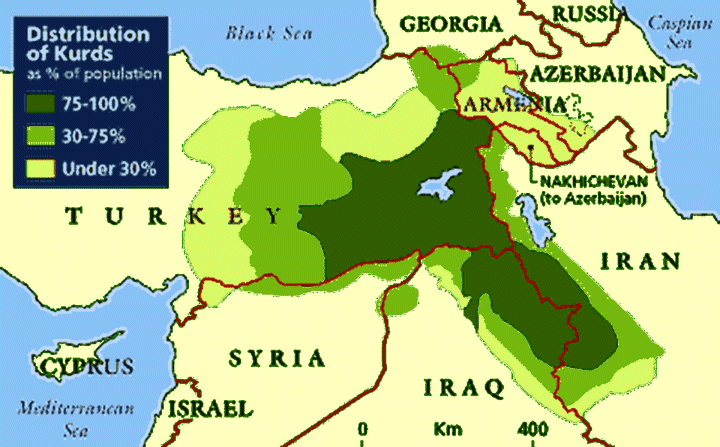- May 17, 2013
- 67,649
- 32,801
- 2,290
The War within a War. Syria/Iraq
There are several Wars going on there and it is not just a War against ISIS/ISIL. This thread is designed to put out information on trying to understand the various groups fighting each other in both Syria and Iraq. Agreements being made and why they were made. Please refrain from political attacks on this thread. My purpose here is only to understand why each side is killing each other. To grasp an understanding of the main combatants.
Most of these fights are centered around the Kurds in Northern Syria and Northern Iraq. So to start this discussion I'd like to show the tensions and fighting between the Kurds and Turkey.
Turkey - PKK conflict
Turkey–PKK conflict - Wikipedia, the free encyclopedia
Since the PKK was founded on 27 November 1978[60] it has been involved in armed clashes with Turkish security forces. The full-scale insurgency, however, did not begin until 15 August 1984, when the PKK announced a Kurdish uprising.[34] The first insurgency lasted until 1 September 1999,[48][61] when the PKK declared a unilateral cease-fire. The armed conflict was later resumed on 1 June 2004, when the PKK declared an end to its cease-fire.[62][63] Since summer 2011, the conflict has become increasingly violent with resumption of large-scale hostilities.[59] In 2013 theTurkish Government and the jailed PKK leader Abdullah Öcalan started a new process regarding the Kurdish question. On 21 March 2013, Öcalan announced the end of armed struggle and a ceasefire with peace talks.[29][64] On July 25, 2015, The PKK finally cancelled their 2013 ceasefire after a year of tension due to various events when the Turks bombed their positions in Iraq,[65] in the midst of their defense against ISIS.
There are several Wars going on there and it is not just a War against ISIS/ISIL. This thread is designed to put out information on trying to understand the various groups fighting each other in both Syria and Iraq. Agreements being made and why they were made. Please refrain from political attacks on this thread. My purpose here is only to understand why each side is killing each other. To grasp an understanding of the main combatants.
Most of these fights are centered around the Kurds in Northern Syria and Northern Iraq. So to start this discussion I'd like to show the tensions and fighting between the Kurds and Turkey.
Turkey - PKK conflict
Turkey–PKK conflict - Wikipedia, the free encyclopedia
Since the PKK was founded on 27 November 1978[60] it has been involved in armed clashes with Turkish security forces. The full-scale insurgency, however, did not begin until 15 August 1984, when the PKK announced a Kurdish uprising.[34] The first insurgency lasted until 1 September 1999,[48][61] when the PKK declared a unilateral cease-fire. The armed conflict was later resumed on 1 June 2004, when the PKK declared an end to its cease-fire.[62][63] Since summer 2011, the conflict has become increasingly violent with resumption of large-scale hostilities.[59] In 2013 theTurkish Government and the jailed PKK leader Abdullah Öcalan started a new process regarding the Kurdish question. On 21 March 2013, Öcalan announced the end of armed struggle and a ceasefire with peace talks.[29][64] On July 25, 2015, The PKK finally cancelled their 2013 ceasefire after a year of tension due to various events when the Turks bombed their positions in Iraq,[65] in the midst of their defense against ISIS.


